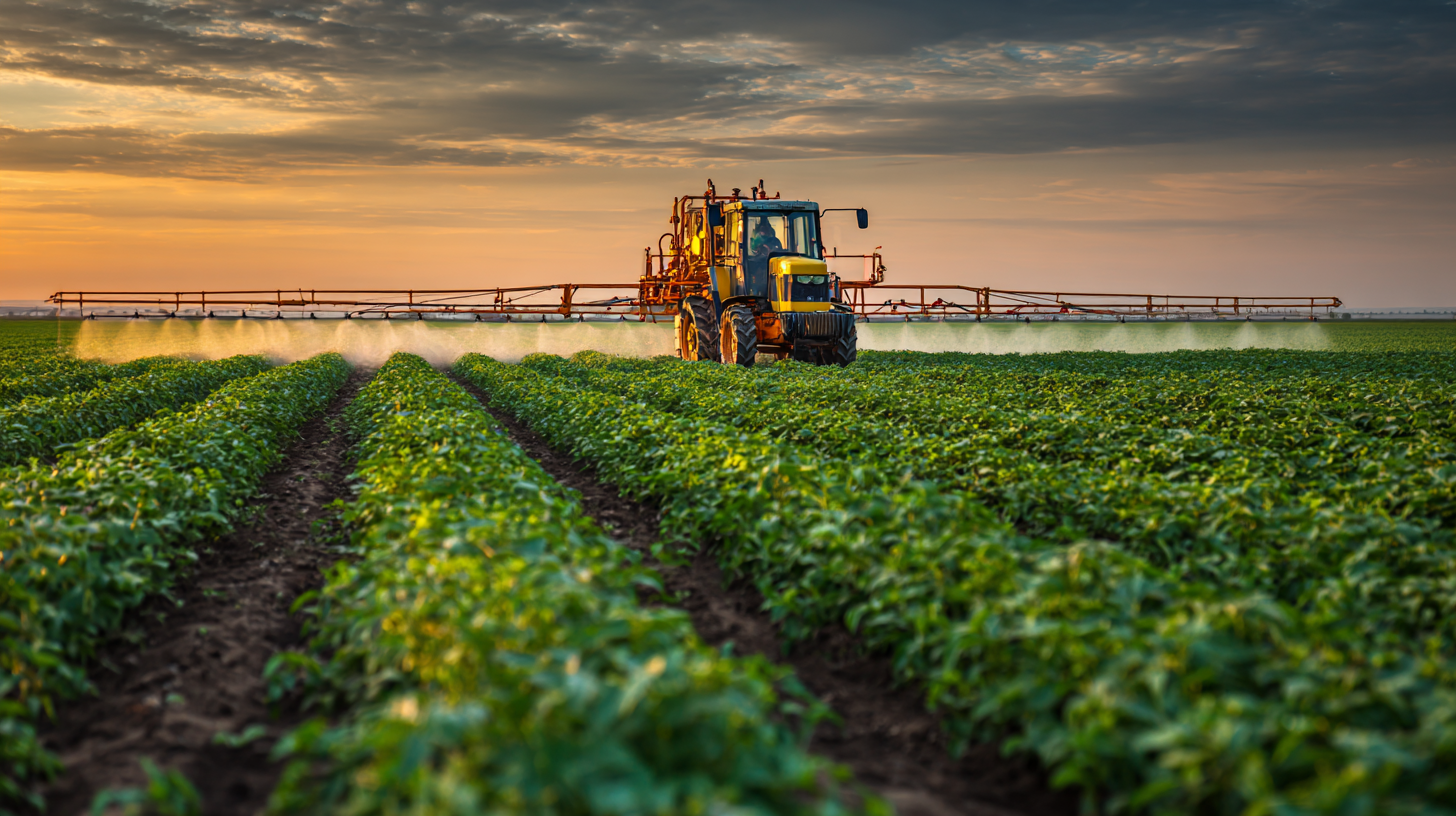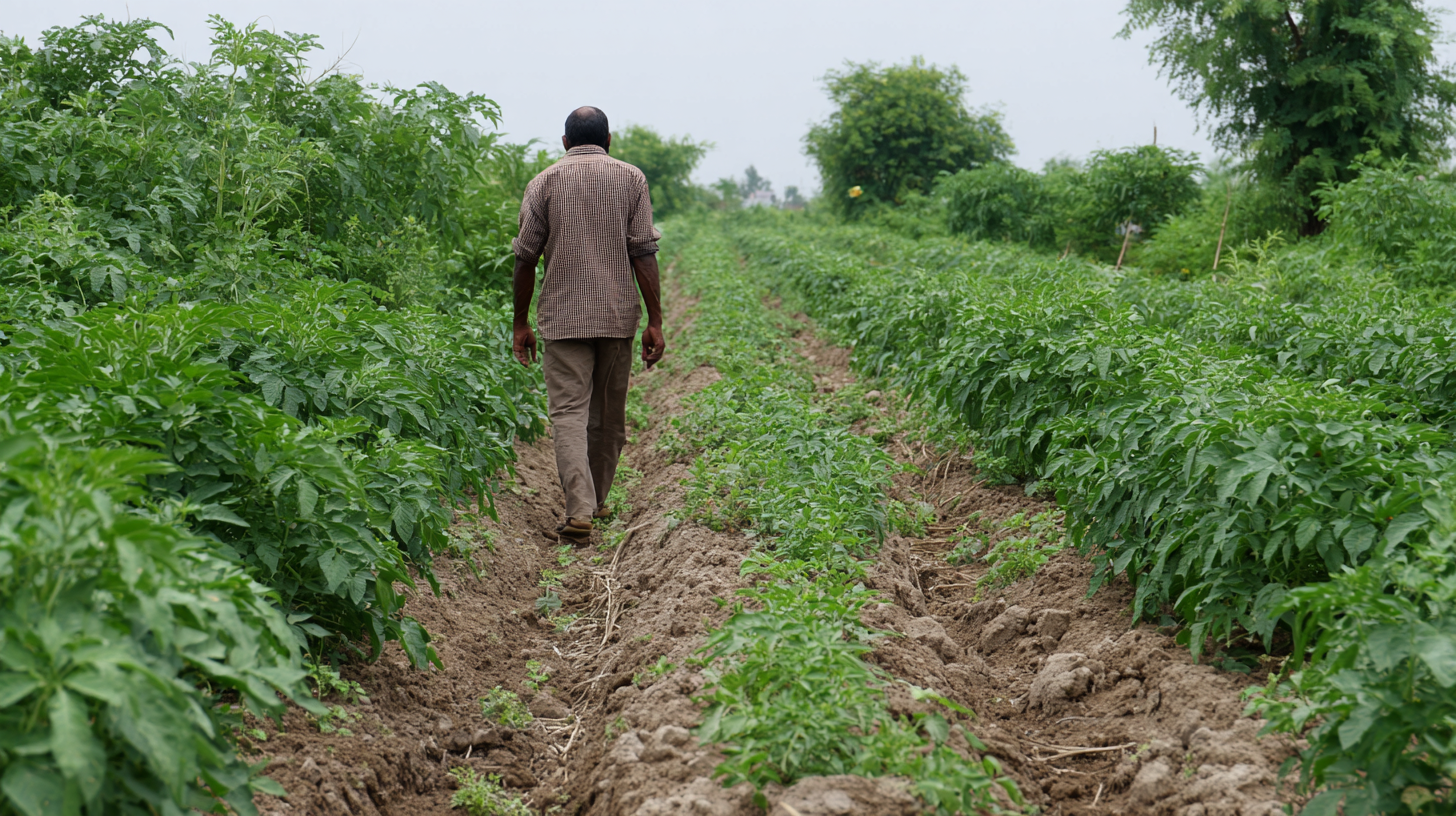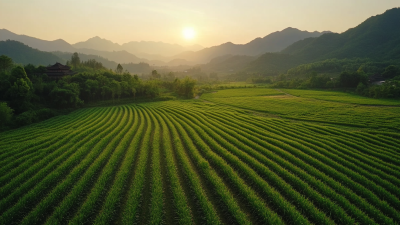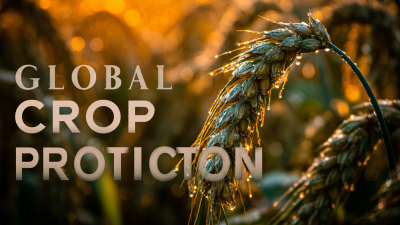 0551-68500918
0551-68500918 





In today’s world, chasing sustainable agriculture has become more important than ever—especially when we’re all worried about food security and protecting our environment. One of the key pieces of the puzzle? Smart use of Agro Chemicals. When farmers incorporate these chemicals thoughtfully, they can boost crop yields, keep pests in check, and improve soil health—all ways to make farming more sustainable overall. Places like Innovation Meiland (Hefei) Co., LTD. are leading the charge here. They’re focused on developing new pesticides, creating innovative formulations, and fine-tuning cutting-edge processes. Based in Hefei, China, Meiland Stock is really dedicated to helping farmers adopt practices that not only land more harvests but also keep our ecosystems healthy. In this blog, we’ll dive into the many benefits of using agro chemicals in sustainable farming and shine a light on how companies like Meiland are pushing the industry forward with fresh ideas and advancements.

You know, agro chemicals really do play a huge part in helping farms produce more crops, which is super important for feeding everyone around the world. When farmers use these tools wisely—controlling pests, diseases, and weeds—they’re basically giving their harvest a big boost and reducing losses. Fertilizers, on the other hand, help keep the soil healthy so plants can grow their best, often leading to even bigger yields. This kind of stuff is especially critical in places where people are struggling with food shortages—every extra bit of produce can make a real difference for those communities.

Agro chemicals really play a crucial role when it comes to managing soil health and making agriculture more sustainable. By using fertilizers, pesticides, and herbicides wisely—without overdoing it—farmers can boost soil fertility and get better crop yields. These chemicals are basically there to replenish key nutrients that might get used up in the soil, so plants have what they need to grow strong and healthy. Plus, mixing organic methods with these chemicals—what folks call integrated nutrient management—can actually improve soil structure and boost biodiversity, which is super good for the whole ecosystem.
And it’s not just about boosting productivity. When we use agro chemicals thoughtfully, they can help protect the land itself. For example, Crop Protection products help reduce pest damage, which means farmers don’t have to clear more land to grow food. That’s a big win for soil health, and it helps cut down on the carbon footprint of farming. Used responsibly, these chemicals can also make farms more resilient to climate ups and downs, which is a huge deal in today’s changing world. All in all, agro chemicals are pretty important for keeping our soils healthy and productive, while also taking care of our environment so future generations can benefit too.
You know, the way we've advanced in precision agrochemical techniques has really changed the game for sustainable farming. Farmers can now target their applications more accurately, which means they use fewer chemicals and do less harm to the environment. Basically, instead of broadly spraying everything, they’re now able to deliver fertilizers and pesticides exactly where and when they're needed most. This is all made possible by using data tools like GPS maps and soil tests—stuff that helps farmers figure out the best spots and the right amounts to use. It’s a smarter way to do things, reducing waste and runoff, and it feels a lot more in tune with protecting our ecosystems.
One of the coolest parts? It’s cutting down on chemical use big time. In the old days, farmers might have just sprayed everything indiscriminately, which can lead to worn-out soils, polluted water, and even harm helpful critters. Now, with these precision methods, they can be much more selective—applying only what’s needed, when it’s needed. That’s good not just for resources but also for supporting a richer variety of life on the farm. When farmers get it right—using the right amount at just the right time—they’re helping to keep soils healthier and ecosystems more balanced. It’s a step toward farming that’s more resilient, especially with climate pressures and growing populations pushing us to do better every day.
The chart below illustrates the reduction in environmental impacts through the precision application of agrochemicals compared to traditional application methods. The benefits measured include reduced soil contamination, lower pesticide runoff, and improved crop yield.
You know, when we talk about the economic perks of using agrochemicals in farming, it’s actually pretty clear that they offer a bunch of benefits—especially for farmers and agri-businesses trying to stay sustainable. When folks bring agrochemicals into their farming routines thoughtfully, they can really boost crop yields and make better use of resources, which totally helps their bottom line. And if used wisely, these chemicals can even support climate-smart farming by making crops more resilient against pests and diseases—so you end up spending less on costly fixes later on.
Plus, today’s farming is moving towards cooler stuff like precision agriculture and even AI tech, which works hand in hand with agrochemicals. This combo helps farmers make smarter decisions, cranking up productivity without harming the environment. Take crop diversification, for example—something that’s really catching on across Europe. Not only does it help the environment, but it also makes farms more economically stable. Farmers who go for diverse crops often see a financial bump because they tap into new markets and benefit from healthy ecosystems away from just money making. So, basically, mixing agrochemicals with modern farming techniques creates a solid game plan for keeping farms profitable and sustainable in today’s world.
Lately, there’s been some pretty exciting progress in agrochemical tech, and honestly, it’s a game-changer for sustainable farming. With all these new methods and emerging gadgets like IoT, precision agriculture is really starting to take off. These innovations don’t just make resource use—like water, fertilizers, or pesticides—way more efficient; they also help reduce the environmental impact. For example, farmers are now using smart apps to keep an eye on their crops in real time, which means they can make smarter decisions that are better for the planet. And then there’s the use of drones—flying robots, basically—for spraying crops. It’s a pretty big step forward because these drones can target specific areas with much more accuracy, cutting down on waste and being gentler on the environment compared to old-school spray methods. Plus, digging into agricultural by-products shows how we’re moving toward a more circular economy, where waste isn’t just discarded but repurposed within the food and beverage industry. All these tech advances are really helping agriculture to face challenges like climate change, boost productivity, and even protect local biodiversity. It’s an exciting time for farming, for sure.
And then there’s the use of drones—flying robots, basically—for spraying crops. It’s a pretty big step forward because these drones can target specific areas with much more accuracy, cutting down on waste and being gentler on the environment compared to old-school spray methods. Plus, digging into agricultural by-products shows how we’re moving toward a more circular economy, where waste isn’t just discarded but repurposed within the food and beverage industry. All these tech advances are really helping agriculture to face challenges like climate change, boost productivity, and even protect local biodiversity. It’s an exciting time for farming, for sure.
So, you know, combining agrochemicals with organic farming is kinda like taking the best of both worlds. It’s a more well-rounded way to boost crop yields while still being mindful of the environment. I read in a 2020 report by the FAO that by 2050, our planet’s gonna have around 9.7 billion people. Crazy, right? That means we’ll need roughly 70% more food, which is no small feat. By mixing in agrochemicals—like biopesticides and natural fertilizers—with organic methods, farmers can better handle pests and fix nutrient gaps without trashing the planet.
And here’s something interesting I came across—there was a study in the Journal of Sustainable Agriculture showing that farms using this mixed approach saw yields jump by about 15-25% compared to just sticking with pure organic methods. Honestly, it’s like a win-win: you can use resources more efficiently and cut down on environmental impact. Plus, it helps keep the soil healthy and promotes biodiversity, which is pretty awesome. Overall, it seems like a smart way to make agriculture more sustainable and still meet the rising demand for organic products in the market.
: Agro chemicals enhance soil fertility and improve crop yields by replenishing essential nutrients in the soil, which supports robust plant growth.
When used judiciously, agro chemicals help protect existing soil health, reduce the need for land clearing, and lower the carbon footprint associated with agricultural practices.
Integrated nutrient management combines organic practices with agro chemicals to enrich soil structure and biodiversity, fostering a healthy ecosystem.
Agro chemicals, particularly crop protection products, mitigate pest damage which helps maintain existing soil health and reduces expansion into undeveloped land.
This integration enhances crop yields, promotes sustainability, and addresses pests and nutrient deficiencies while being environmentally conscious.
The FAO predicts that the global population will reach 9.7 billion by 2050, requiring a 70% increase in food production.
Farms that employ integrated agro chemical strategies can experience a 15-25% increase in yields compared to conventional organic methods alone.
They help farmers effectively manage pests and nutrient deficiencies while supporting environmental sustainability.
The responsible use of agro chemicals supports soil health, enhances biodiversity, and aligns with the increasing demand for organic products in the market.
By using agro chemicals strategically, farmers can enhance the resilience of their crops to changes in climate, supporting sustainable agricultural practices.
When it comes to sustainable farming, using Agro Chemicals wisely really brings a bunch of benefits. It can boost crop yields and help improve food security—that’s a big deal, right? By taking good care of soil health and promoting eco-friendly practices, these chemicals play a key role in making farming more efficient. And with all the tech advances these days, farmers can now apply these chemicals more precisely—kind of like a sniper shot—so they do their job while hurting the environment as little as possible. That’s a win-win situation, saving money while being kinder to our planet.
At Meiland Stock, based out of Hefei in China, we’re all about creating new pesticides, formulations, and methods that fit into sustainable farming plans. We’re really committed to blending Agro Chemicals with organic farming in a way that not only tackles today’s farming challenges but also sets the stage for a greener, more sustainable future.







